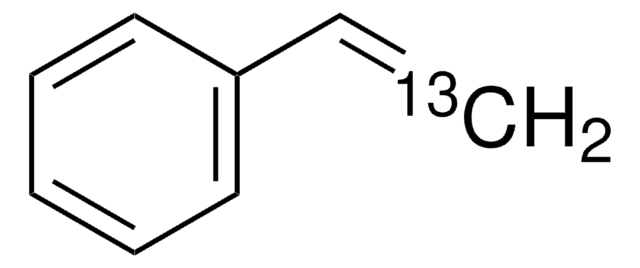ABN1381
Anti-phospho-TrkB (Tyr816) Antibody
from rabbit, purified by affinity chromatography
Synonym(s):
BDNF/NT-3 growth factors receptor, Neurotrophic tyrosine kinase receptor type 2, TrkB tyrosine kinase, Trk-B, phospho-TrkB(Tyr816)
About This Item
Recommended Products
biological source
rabbit
Quality Level
antibody form
affinity isolated antibody
antibody product type
primary antibodies
clone
polyclonal
purified by
affinity chromatography
species reactivity
mouse, rat
species reactivity (predicted by homology)
gorilla (based on 100% sequence homology), bovine (based on 100% sequence homology), porcine (based on 100% sequence homology), human (based on 100% sequence homology), horse (based on 100% sequence homology)
technique(s)
immunocytochemistry: suitable
immunohistochemistry: suitable
immunoprecipitation (IP): suitable
western blot: suitable
NCBI accession no.
UniProt accession no.
shipped in
wet ice
target post-translational modification
phosphorylation (pTyr816 )
Gene Information
human ... NTRK2(4915)
rat ... Ntrk2(25054)
General description
Specificity
Immunogen
Application
Immunoprecipitation Analysis: A representative lot immunoprecipitated Tyr816 phosphorylated TrkB from BDNF-stimulated HEK293 cells expressing transfected TrkB (Courtesy of Dr. Moses V. Chao, Langone Medical Center, New York University).
Western Blotting Analysis: A representative lot detected dexamethasone-(Dex-) and BDNF-induced TrkB Tyr816 phosphorylation in cortical slices from postnatal P9–P10 rats, as well as in dorsal striatum from P18-20 rats received intraperitoneal Dex injection (Jeanneteau, F., et al. (2008). Proc Natl Acad Sci USA. 105(12):4862-4867).
Western Blotting Analysis: A representative lot detected TrkB Tyr816 phosphorylation in mice brain synaptosome preparations (Parkhurst, C.N., et al. (2013). Cell. 155(7):1596-1609).
Western Blotting Analysis: A representative lot detected BDNF-stimulated TrkB Tyr816 phosphorylation in cultured mouse hippocampal neurons and HEK293 cells expressing murine TrkB (Bath, K.G., et al. (2008). J. Neurosci. 28(10):2383-2393).
Immunohistochemistry Analysis: A representative lot detected enhanced TrkB Tyr816 phosphorylation in the dentate gyrus tissue sections from postnatal P18 rats after receiving metyrapone and/or dexamethasone treatment (Jeanneteau, F., et al. (2008). Proc Natl Acad Sci USA. 105(12):4862-4867).
Immunohistochemistry Analysis: A representative lot detected TrkB Tyr816 phosphorylation in coronal slices of the rostral migratory stream (RMS) from adult mice (Bath, K.G., et al. (2008). J. Neurosci. 28(10):2383-2393).
Immunocytochemistry Analysis: A representative lot detected corticosterone-stimulated TrkB Tyr816 phosphorylation in 5-hour starved rat hippocampal neuron culture (Jeanneteau, F., et al. (2008). Proc Natl Acad Sci USA. 105(12):4862-4867).
Immunocytochemistry Analysis: A representative lot detected BDNF-stimulated TrkB Tyr816 phosphorylation in cultured DRG neurons from E16.5 rat embryos (Arevalo, J.C., et al. (2006). Neuron. 50(4):549-559).
Neuroscience
Developmental Signaling
Quality
Western Blotting Analysis: A 1:500 dilution of this antibody detected phospho-TrkB (Tyr816) in 10 µg of BDNF treated murine TrkB-transfected HEK293 cell lysate.
Target description
Physical form
Storage and Stability
Other Notes
Disclaimer
Not finding the right product?
Try our Product Selector Tool.
recommended
Storage Class Code
12 - Non Combustible Liquids
WGK
WGK 1
Flash Point(F)
Not applicable
Flash Point(C)
Not applicable
Certificates of Analysis (COA)
Search for Certificates of Analysis (COA) by entering the products Lot/Batch Number. Lot and Batch Numbers can be found on a product’s label following the words ‘Lot’ or ‘Batch’.
Already Own This Product?
Find documentation for the products that you have recently purchased in the Document Library.
Our team of scientists has experience in all areas of research including Life Science, Material Science, Chemical Synthesis, Chromatography, Analytical and many others.
Contact Technical Service







